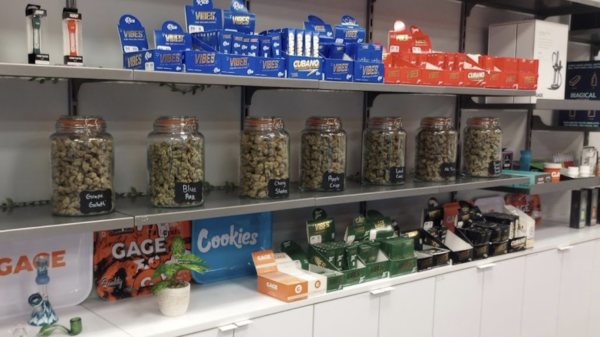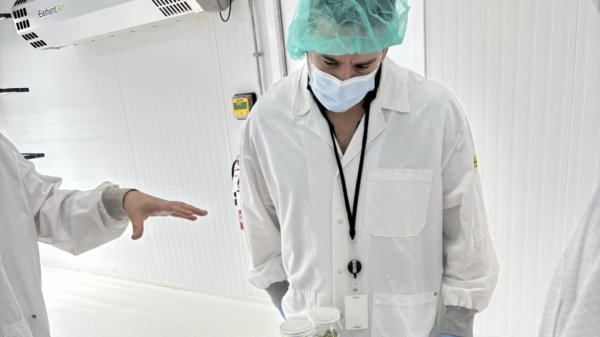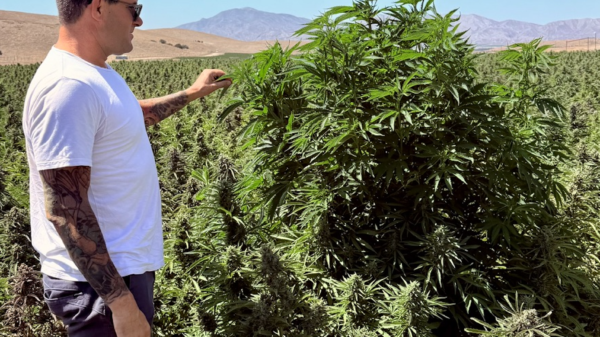In 2022, Thailand shocked the world by becoming the first Asian country to decriminalize marijuana. For a country where you could once go to jail for merely possessing a single joint, this was big news.
In the past two years, the cannabis industry in Thailand enjoyed meteoric growth. Massive farms popped up all over the country almost as fast as dispensaries did. Over 20,000 dispensaries opened, and Kanchanaburi now boasts over 600,000 cannabis plants. This makes it the main growing area of Thailand. Revenue from the industry projects at US$1.2 billion by 2025.
And yet only a few weeks ago, Prime Minister Srettha Thavisin released a statement asking the Health Minister to include cannabis again in the list of narcotics. He also ordered local authorities to crack down on criminal activities linked to the illegal marijuana trade.
So, what gives? Is the country really going to pass legislation that will make millions of dollars worth of equipment, facilities, and inventory redundant? Let’s take a closer look at Thailand’s relationship with cannabis in the past.
Read more: Japan’s cannabis industry has ‘staggering’ growth over past four years
Read more: Historic cannabis rescheduling imminent in the U.S., sources say
History of cannabis in Thailand
Cannabis in Thailand seemingly came there by way of Indian merchants from Central Asia and the Himalayas. There, the plants grew wild. Known as “ganja” in Sanskrit, cannabis’ vernacular name in Thailand was “kan cha”.
Early uses of cannabis were mostly medicinal. The Thais included it in their food and drink, and used hemp plants for textiles such as Muay Thai wrist wraps. However, in the 20th century, like many other countries, Thailand began to participate in international efforts to control the use and spread of illegal narcotics.
In 1934, the Cannabis Act came into effect, which made possession as well as the sale and distribution of cannabis plants illegal. The act also criminalized possession and sale of cannabis paraphernalia such as bongs.
In 1979, the Narcotics Act came into effect which classified hemp and cannabis as a Category 5 drug. Possession, sale and use of cannabis brought harsh criminal penalties. Despite this, consumption of cannabis continued.
Then in 2018, the Thai government relaxed its stance and legalized hemp for industrial and medicinal purposes. Hemp is defined as any cannabis product containing less than 0.02% THC (tetrahydrocannabinol). THC is the psychoactive compound that causes the euphoria “high” that marijuana is so famous for.
In 2022, the Ministry of Health created tidal waves in the country by announcing the exclusion of cannabis and hemp from the Category 5 narcotics list. The results were instant. Entrepreneurs and cultivators who wanted to jump on the “green rush” bandwagon flooded the country.
Dispensaries popped up like mushrooms. Although smoking in public is technically prohibited, the busy nightlife areas and tourist streets became so thick with smoke that your eyes would water.
And now, in another surprising move, the Prime Minister wants to put cannabis back on the narcotics list. Thavisin cites a lack of safety, regulation, and potential for abuse. A recent study found that the number of cannabis users under the legal age of 20 increased more than 10 times since 2022.

Revenue from the Thai cannabis industry projects at US$1.2 billion by 2025. Via Freepik/Jcomp
Current ‘gray area:’ legalization of the cannabis industry
Although the government legalized hemp containing under 0.02% THC for industrial and medicinal use, cannabis containing more than that remains technically illegal, but decriminalized since it is taken off the narcotics list.
This has led to widespread, unregulated growth with an influx of foreigners entering the market, causing prices to fall, and impacting local farmers. Getting a license for a dispensary is as simple as filling up an online form.
This can cause a wave of unsafe, contaminated products to hit the market and turn into a public health threat. Many pro-cannabis leaders like Mr. Noah Levit Ades, the Director of Cannabis Operations at Thonburi Healthcare Group, the first hospital cannabis facility, agree that the country would benefit from more rules and restrictions.
To put it simply, the Thai cannabis industry rages out of control and it was clearly a matter of too fast, too soon. Now the government wants to jump off the bandwagon and make recreational cannabis illegal again. If you have a prescription, medical use will still be allowed if bought from licensed clinics.
Can the government, business owners, users, and foreign investors find a middle ground? After all, the industry is worth over a billion now, and everyone wants a slice of the pie.













